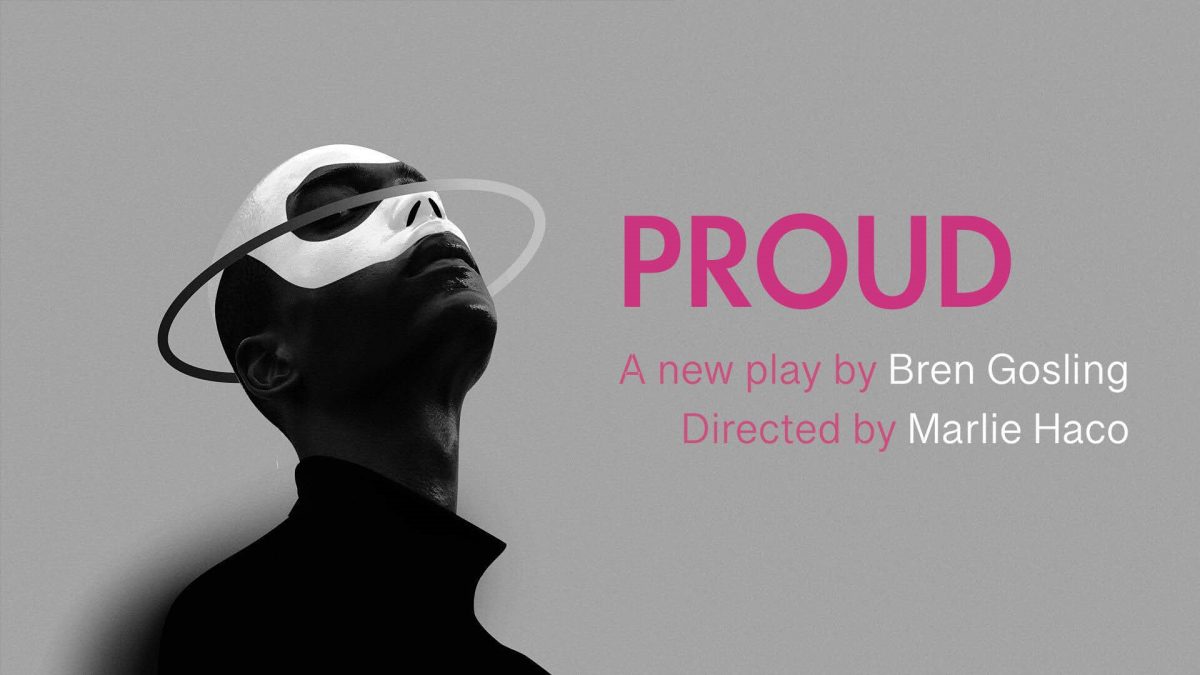‘Proud’ is adapted by Bren Gosling from his novel depicting the interactions between three characters in contemporary London. Roland is in his forties, and father of a teenage son, Gary. After the death of his Pentecostal mother Roland is finally free to live as a gay man, though this has created complications in his life with Gary who is displacing his unhappiness at home by getting into trouble at school. Into the mix comes Amir, a refugee street sweeper, who, after a chance meeting with Roland, becomes his lover. However, he does not accept his sexuality and suffers from traumatic flashbacks. Each of the three is encumbered with unresolved questions of identity, and the play explores ways in which they grow closer despite several volatile episodes along the way in which the terrors of displacement, homophobia and racism all play a part.
Summarised baldly in this way the play may seem based on familiar rhetorical tropes and personal dilemmas, but it is elevated to a high level of achievement by the skill of the three actors, the funny and plausible naturalistic dialogue, and above all by the remarkable synergy between the sound, light and design concepts coordinated by director Marlie Haco. Its success is a veritable team effort.
To take the last point first…. The confined space in the King’s Head has stimulated the creative team to rely on suggestion rather than literalism. Justin Nardella’s ingenious set takes the interior of Roland’s apartment and merges it with a hoop and lines from a basketball court to reflect the passion all three men share, and through which they articulate their emotions. The lines extend as light strips to pick out the doors as well. Within this framework are enacted several movement sequences that merge sport and intimacy in revealing and moving ways, and where the lighting and sound schemes of Ben Jacobs and Ákos Lustyik shape the mood and psychological evolution of the characters most expertly. The particularity of the dialogue is married to an abstraction of emotion that resonates powerfully with the audience. We feel the troubled backstories of these men even before we gradually learn more about them and that already encourages us to care for them as characters. It is almost like a musical where the passage from speech to music and back again should seem inevitable; but in this case no one needs to sing.
Without actors of athleticism and nuance, though, the piece could make little progress, and at its heart lies three carefully layered depictions that command attention. Folarin’s restless performance captures Roland’s kindness and generous bonhomie while not concealing his anxieties and as-yet-incomplete sense of gay identity. It would have been easy to play his son Gary as simply a petulant and sullen teenager, but Hatukai finds much more light and shade and humour than that, and – eventually – a kind of wisdom that escapes the others. Maniata plays the troubled refugee Amir with the right blend of gentleness and brittle danger exploring a wide emotional spectrum. The positive ending therefore emerges as a natural product of the drama and not as a piece of wishful thinking on the part of the author.
There are a couple of points that cause a little concern. At ninety minutes the play is a shade too long, with some of the issues coming around for discussion again without a compelling dramatic reason. This strikes me as a common problem in new plays post-pandemic that don’t want to break for an interval, but really are naturally only an hour or so of sustained and engaged energy. Also, the ages of the actors did cause some issues of adjustment. Perhaps it is just me, but while we have grown accustomed to gender and racial blind-casting, I still found it something of a problem when the ages of the actors seemed quite closely bunched.
This is an entertaining and thought-provoking evening in equal measure and very much within the distinguished tradition of gay-themed theatre we have learned to expect at the King’s Head.

